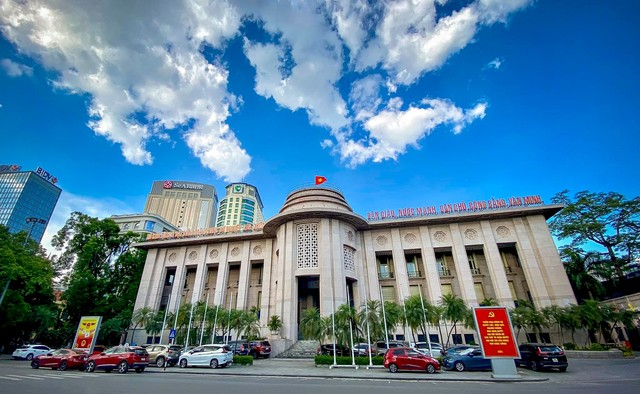
The State Bank has just announced the Draft Decree regulating the Controlled Experiment Mechanism in the banking sector.
According to the Draft, Fintech solutions in the banking sector are allowed to be tested in the Experiment Mechanism, including the following areas:
1. Credit scoring.
2. Data sharing through open application programming interfaces (Open API).
3. Peer-to-peer lending (P2P Lending).
The Draft Decree establishes the conditions for participating in the Experiment Mechanism for Fintech companies in two groups: the conditions for Fintech companies to register to participate in testing credit scoring and data sharing solutions through open application programming interfaces (Open API), excluding peer-to-peer lending solutions and the conditions for Fintech companies that engage in peer-to-peer lending.
The State Bank of Vietnam stated that, in recent times, the global banking sector in general, and the Vietnamese banking sector in particular, have witnessed a strong application trend of new technologies associated with the achievements of the Industrial Revolution 4.0.
In Vietnam, the Fintech development trend is also clearly demonstrated through the participation of technology startups, non-bank organizations with strong technology capabilities in activities in the banking and financial sector (Fintech companies). These companies develop support solutions for banking activities without directly providing services to end-users or directly offering independent new solutions.
The rapid development and expansion of Fintech have posed challenges for the financial supervision authorities of many countries, such as risks of money laundering and terrorist financing (AML/CFT), ensuring cybersecurity, protecting user data, protecting consumer and investor rights, etc.
Like many financial regulatory agencies around the world, the State Bank of Vietnam and other relevant agencies are also facing new challenges in state management work with the presence of Fintech companies supplying or participating in service provision and solution development in many different industries and fields, such as payments, P2P Lending, credit scoring, etc. The abovementioned fields and activities of these Fintech companies mostly lack a comprehensive legal framework or specific regulations for governance, so potential risks and negative impacts may exist in certain aspects, such as fair competition, financial stability, consumer protection, and cybersecurity. Additionally, the intertwined development trend of “cooperation-competition” poses challenges for policy and regulatory frameworks of state management agencies in balancing the promotion of innovation and competition between traditional financial institutions and Fintech companies while ensuring financial stability, consumer protection, and cybersecurity.
For example, in recent times, P2P Lending activities have emerged in Vietnam. The State Bank of Vietnam stated that some companies falsely claim to operate under the P2P Lending model and take advantage of the lack of knowledge or understanding of the people to cheat and deceive, advertise false information, promise high profits and interest rates to defraud, misappropriate capital from people who invest in this lending model, or deceive borrowers with “low” interest rates and favorable loan conditions while actually applying high interest rates, negatively affecting people’s lives. Some agreements between parties participating in the P2P Lending model (P2P Lending companies and investors, P2P Lending companies and third parties, P2P Lending companies and borrowers, etc.) lack clarity, transparency, legal constraints, and have no surveillance mechanism, control mechanism for the proper use and management of borrowed capital by borrowers, which can lead to disputes and lawsuits between parties.
In the regional and international context, many countries around the world have proactively approached the rise of Fintech by establishing Controlled Experiment Mechanisms for Fintech activities in the form of independent entities (such as Fintech startups) or as technology solutions applied and implemented in the service provision and solution development of traditional financial institutions.
The Experiment Mechanism is one of the tools and policy approaches most favored and applied by many countries to accelerate innovation, enhance competition, and improve efficiency in the banking and financial sector by allowing the testing of Fintech solutions through actual transactions in a controlled environment with limitations on scope, scale, and testing duration. Fintech solutions participating in this Experiment Mechanism will be regularly and continuously supervised by the banking and financial management authorities to minimize risks and negative consequences. The information, data, and test results of the solutions participating in this Experiment Mechanism will be the basis for the management authorities, supervision authorities, and potential service providers participating in the Experiment Mechanism to evaluate the feasibility, benefits, and risks of the solutions, thereby making appropriate decisions and next steps.
In the above trends and contexts, Vietnam needs to soon establish a management framework in the form of a Decree regulating the experiment mechanism for Fintech activities to promote innovation, prevent unhealthy competition, prevent acts in violation of the law under the name of Fintech, protect the interests of service users. At the same time, the operating process of this framework provides a practical basis for relevant state management agencies to amend and supplement current regulations, improve legal framework, issue management regulations in a way that facilitates and adapts to Fintech activities in the banking sector in the coming time.















